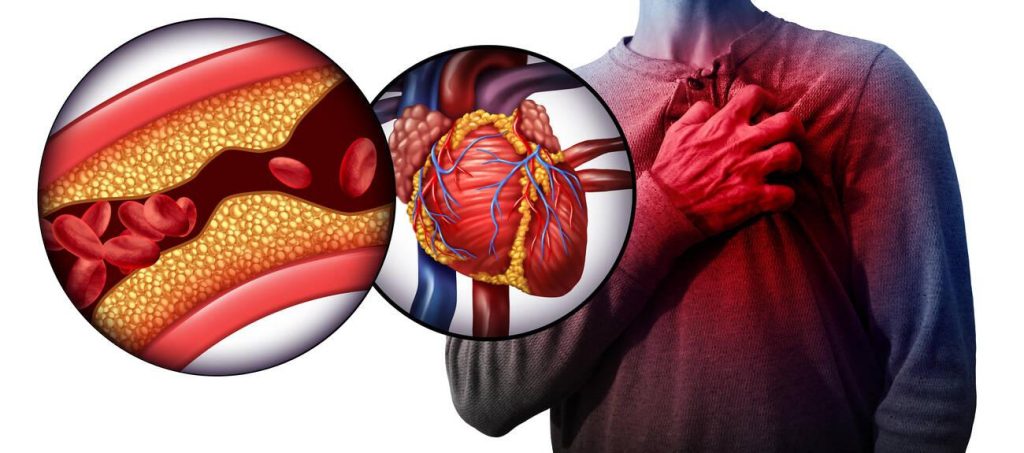Junk Food Effects:: Understanding Health Impacts Guideline.
Are You Addicted to Junk Food? Here’s What You Need to Know about the junk food effect.

The Impact of Junk Food on Nutrition Junk food lacks the necessary nutrients essential for our bodies to function properly. These foods are often deficient in vitamins, minerals, fiber, and antioxidants that are crucial for supporting a strong immune system, fostering cell regeneration, and maintaining overall bodily functions. Depending heavily on junk food as a main dietary component can result in deficiencies of these key nutrients, which can trigger a range of health issues.
The prevalence of junk food in contemporary diets is largely due to its high sugar content, unhealthy fats, and lack of nutritional value. Despite its convenience and tastiness, the long-term consequences of consuming junk food regularly are alarming. This detailed manual explores the diverse ways in which junk food affects our physical and mental health, equipping you with the knowledge needed to make wise dietary decisions.
The Nutritional deficiencies of Junk food effects
Junk food is notoriously devoid of essential nutrients our bodies require for optimal functioning. It is deficient in crucial nutrients required for supporting a strong immune system and proper bodily functions. By relying on junk food as a primary source of sustenance, individuals risk developing deficiencies in these vital nutrients, leading to a cascade of health complications.
Insufficient consumption of vital nutrients can result in decreased energy levels, metabolic issues, and compromised health. Inadequate intake may lead to fatigue, a weakened immune system, and reduced cognitive function. Additionally, the absence of fiber in unhealthy food choices can cause digestive problems like constipation and bloating.
Fiber is crucial for supporting digestion, regulating blood sugar, and lowering the risk of chronic illnesses such as heart disease and diabetes. By choosing junk food over fiber-rich options, individuals increase their susceptibility to these health concerns. Despite the allure of convenience and taste associated with junk food, it’s essential to recognize the potential long-term impact on our well-being. Prioritize a varied diet for good health and to prevent harmful nutrient deficiencies.
The Physical Consequences of Junk Food Consumption
It is essential to educate ourselves on the health implications of consuming junk food, as recent studies have shown that the excessive amounts of added sugars and unhealthy fats in these products can disturb our hormonal equilibrium, resulting in heightened inflammation within our bodies. This persistent inflammation has been linked to an elevated likelihood of developing illnesses like type 2 diabetes and heart disease. Additionally, the high levels of salt present in numerous processed foods can lead to hypertension, further burdening our cardiovascular system.
Over time, this can increase the likelihood of experiencing heart attacks and strokes. By recognizing these direct correlations between junk food consumption and serious health issues, individuals can make more informed choices about their dietary habits to safeguard their long-term well-being. The detrimental effects of junk food extend far beyond nutritional deficiencies. Regular consumption is directly linked to an increased risk of developing various chronic diseases, including:

Obesity
The detrimental impact of junk food, with its high calorie and unhealthy fat content, includes weight gain and an increased risk of obesity. Despite its popularity in today’s fast-paced world due to convenience and taste, indulging in junk food often leads to obesity. The widespread availability of junk food is a key factor contributing to the global rise in obesity rates.
This issue extends beyond personal choices and encompasses societal influences on our eating habits. Additionally, the addictive properties of some junk foods can make it challenging for individuals to opt for healthier alternatives consistently. Therefore, increasing awareness about the adverse effects of excessive consumption of junk food is essential for promoting better health outcomes for all individuals.

Heart Disease
The detrimental impact of junk food on heart health, stemming from its high saturated and trans fat content, is often underestimated in our fast-paced society that values convenience over nutrition. These popular food choices not only contribute to weight gain but also significantly elevate LDL cholesterol levels, promoting the development of atherosclerosis. This dangerous process leads to the accumulation of plaque in arteries, restricting blood flow to vital organs like the heart and brain and increasing the risk of severe conditions such as heart attacks and strokes.
While occasional indulgence is normal, consistent consumption of junk food exposes our bodies to ongoing harm from unhealthy fats, with lasting consequences. Individuals must recognize how their dietary habits directly impact their cardiovascular well-being. By making gradual shifts towards a more balanced diet centered on whole foods, we not only support physical health but also reduce the likelihood of chronic diseases like heart disease. Through mindful eating choices, we proactively safeguard our hearts for the future.
Type 2 Diabetes
The detrimental impact of unhealthy snacks, such as junk food, lies in their excessive sugar levels, which can trigger insulin resistance. This condition hinders the body’s ability to properly utilize insulin for controlling blood glucose levels, potentially culminating in the development of type 2 diabetes, a persistent health condition marked by elevated blood sugar levels.
Cancer
Studies have shown a link between high consumption of processed meats and sugary drinks, common components of junk food diets, and an increased risk of developing certain types of cancer.
Furthermore, the impact of junk food on cancer risk extends beyond just processed meats and sugary drinks. Research shows trans fats in fast food can raise cancer risk. These harmful fats not only cause inflammation but are also associated with various types of cancer, like breast and prostate cancer.
Apart from raising the risk of cancer, unhealthy eating habits often lack essential nutrients crucial for a strong immune system and fighting off cancer cells. Consuming junk food, which is low in nutrients, can heighten the risk of developing cancer. Therefore, people need to focus on maintaining a well-rounded diet that incorporates ample fruits, vegetables, lean proteins, and whole grains to lower the likelihood of cancer linked to unhealthy eating habits such as indulging in processed foods.
Digestive Problems
Junk food lacks fiber, causing digestion problems. When we indulge in junk food, our taste buds are satisfied, as are our convenience-loving selves. But as we reach for those crispy fries or sugary treats, do we ever pause to think about how they affect our digestion? Junk food is typically low in fiber, an important component of a healthy gastrointestinal system. Without enough fiber, our digestive processes can slow down, leading to frustrating issues like bloating and constipation.
It’s vital to remember that junk food impacts our bodies beyond mere guilty pleasure; it directly influences how smoothly or sluggishly we process what we eat. By prioritizing foods rich in fiber and essential nutrients, we actively support our digestive health and overall well-being. So, next time that greasy burger or sweet soda tempts you, consider opting for a more fiber-rich alternative to show your body some true love from the inside out.
The Mental and Emotional Effects of Junk Food
The impact of junk food goes beyond physical health, affecting our mental and emotional well-being as well.In addition to its obvious physical consequences, junk food also takes a toll on our mental and emotional well-being. Research has linked the consumption of highly processed foods high in sugar and fat to increased symptoms of depression and anxiety. These foods can affect brain chemicals, causing mood swings and cognitive decline.
Moreover, junk food’s addictive nature can create a vicious cycle of seeking out more unhealthy snacks to satisfy cravings. This desire for instant gratification can cause guilt, shame, and low self-esteem when giving in to tempting treats. As individuals become reliant on the temporary pleasure derived from junk food, they may neglect their long-term emotional health and overall well-being. Eating impacts the body and mind.

Depression and Anxiety
When it comes to our mental health, the impact of junk food cannot be underestimated. The high sugar and refined carbohydrates found in these convenient but harmful treats can wreak havoc on our mood by causing rapid spikes and crashes in blood sugar levels. These fluctuations not only leave us feeling tired and irritable but can also contribute to an increased risk of developing depression and anxiety.
Studies show that a junk food diet disrupts brain neurotransmitter balance, leading to low mood, energy, and anxiety. Consuming excess junk food can worsen depression and anxiety symptoms by triggering an inflammatory response.
By being mindful of what we eat and making conscious choices to prioritize whole, nutritious foods over processed junk options, we can take significant steps toward safeguarding our mental well-being. Every bite impacts physical health, emotional resilience, and cognitive function. So next time you reach for that bag of chips or sugary soda, consider how it might be influencing your mental state. Opting for nutrient-dense alternatives could be the key to cultivating a brighter outlook on life.
Cognitive Decline
Research has revealed alarming connections between our dietary choices and cognitive decline. Eating processed foods harms brain function and long-term cognitive health. They can also cause brain inflammation, leading to cognitive decline and a high risk of Alzheimer’s. Option for whole foods to nourish your brain and enhance cognitive function. These highly processed foods, devoid of vital vitamins and minerals, can lead to neuronal damage and inflammation in the brain, setting the stage for cognitive impairment.
Studies show that a poor diet and junk food are linked to dementia risk. The harm of these unhealthy foods on brain health is huge. Rather than serving as occasional treats, junk foods pave the way for accelerated cognitive decline and neurological disorders that could severely impact quality of life in later years. This highlights the urgent need to adopt a more balanced diet rich in nutrients to safeguard our cognitive well-being against the threats posed by modern-day dietary pitfalls.
Addiction
Eating junk food releases dopamine, leading to cravings and making it harder to break unhealthy eating habits. Biting into a crispy, greasy French fry or savoring the creamy sweetness of a milkshake can send waves of pleasure through our brains. These indulgent junk foods have the power to trigger the release of dopamine, often dubbed the feel-good neurotransmitter. This chemical response creates a cycle of pleasure and reward that can easily turn into addictive behavior.
With each bite, our brains learn to associate junk food with feelings of satisfaction and happiness, reinforcing a craving for more. These cravings then drive us to seek out these foods again and again, perpetuating a harmful cycle that can be difficult to break. The accessibility and affordability of junk food in today’s society only exacerbate this issue, making it even harder for individuals to resist their allure and make healthier choices.
In a world where fast-food chains line every street corner and convenience stores are stocked with sugary snacks at every turn, breaking free from the grip of addiction to junk food requires conscious effort and determination. By understanding food’s impact on our brains and being mindful of cravings, we can control eating habits for a healthier lifestyle.
Strategies for Reducing Junk Food Consumption
Recognizing junk food’s harm, it’s crucial to reduce consumption. Here are some tips: To avoid the temptation of junk food, opt for colorful and nutrient-dense whole foods that not only satisfy cravings but also nourish your body. Instead of reaching for a bag of chips, consider snacking on fresh fruits, vegetables, or nuts to keep hunger at bay. By focusing on consuming foods rich in vitamins and minerals, you can naturally reduce your desire for sugary or high-fat processed snacks.
Another effective strategy is to plan your meals ahead of time to prevent impulsive junk food purchases. Also, practice mindful eating by enjoying each bite and being mindful of how food affects you. This approach can help you value healthy choices and reduce reliance on junk food over time.

Plan your meals
By prearranging your meals and snacks, you can avoid making hasty choices and ensure that nutritious options are readily available, thus minimizing the impact of junk food on your health.When it comes to meal planning, the benefits extend beyond convenience.
By having a well-thought-out schedule for your meals and snacks, you can effectively steer clear of impulsive decisions that often lead to indulging in unhealthy junk food choices. The negative impacts of consuming unhealthy food are widely recognized, including weight gain, lack of essential nutrients, and heightened susceptibility to chronic illnesses such as heart disease and diabetes.
Making a conscious effort to plan your meals not only helps you prioritize healthier options but also allows you to experiment with new recipes and ingredients. Instead of unhealthy snacks, have nutritious options for better choices all day. Meal planning ensures essential nutrients for a thriving body, avoiding junk food’s negative effects.
Cook more at home
Cooking at home allows you to control the ingredients and prepare meals with less added sugar, unhealthy fats, and salt.By choosing to cook more at home, you take charge of your health and well-being. The prevalence of junk food in our modern diet has led to a myriad of negative impacts on our bodies, from obesity to heart disease.
Cooking at home gives you the opportunity to avoid hidden sugars and unhealthy fats that often lurk in processed foods. By utilizing fresh ingredients and cooking from scratch, you can create meals that are not only nourishing but also immensely satisfying.
This level of customization is often lacking in pre-packaged or fast-food options, which prioritize convenience over individual dual health concerns. By experimenting with different flavors and ingredients in your kitchen, you open up a world of culinary possibilities that can elevate your eating experience beyond what any take-out meal could offer. So, next time the temptation for junk food strikes, consider whipping up a delicious homemade meal instead!
Read food labels
When it comes to choosing what we eat, it’s essential to be mindful of the nutrition details listed on food packaging. While the temptation to eat unhealthy snacks may be strong, a closer examination of their nutritional content can reveal important insights. By understanding the levels of sugar, saturated fats, and sodium in these products, we can better grasp their impact on our health.
By being attentive to food labels, we equip ourselves with the knowledge needed to make wise dietary decisions that promote our overall well-being. Instead of succumbing to marketing ploys or societal norms, we can select foods that nourish our bodies. So, before indulging in a bag of chips or a sugary beverage, take a moment to review the nutrition facts; your body will appreciate it in the long term.
Choose whole foods
Option for whole, unprocessed foods like fruits, vegetables, whole grains, and lean protein sources. When we choose whole foods over processed alternatives, we are not just making a dietary choice; we are choosing to prioritize our health and well-being. By opting for fruits, vegetables, whole grains, and lean protein sources, we provide our bodies with essential nutrients in their purest forms.
Consistent consumption of junk food can have extensive and adverse consequences for both physical and mental health, resulting in detrimental effects on overall well-being. High levels of sugar, salt, and saturated fats found in processed foods can lead to obesity, heart disease, diabetes, and other chronic conditions. Making the switch to whole foods is not just about forsaking convenience; it’s about investing in your long-term vitality and quality of life.
Limit sugary drinks
One fresh perspective to consider is the role of sugary drinks in contributing to the global increase in obesity rates. As junk food consumption continues to increase worldwide, so does the prevalence of sugary drink consumption. Making a conscious effort to choose water or other healthier beverages over sugary drinks can help combat this trend and promote better health outcomes.
Furthermore, the addictive properties of sugar found in these beverages make it challenging for individuals to break free from unhealthy habits. By gradually replacing sugary drinks with water or other low-calorie options, individuals can begin to retrain their taste buds and reduce cravings for excessive sugar intake.
Be mindful of portion sizes
Be mindful of serving sizes and steer clear of excessive eating, even when it comes to nutritious foods. Even with healthier options, it’s easy to get caught in the cycle of overindulging. Regulating portion sizes is crucial for sustaining a well-rounded diet and avoiding unnecessary calorie intake. Despite the advantages of nutritious foods for our bodies, indulging in them excessively can still result in weight gain and other health complications.
One common misconception is that we can eat unlimited amounts of healthy food without consequences. However, even nutrient-dense foods can contribute to weight gain if consumed in excess. By being mindful of portion sizes, we not only prevent overeating but also foster a healthier relationship with food overall.
The effects of overconsumption of junk food are well documented. It’s important to pay attention to portion sizes, not only with healthier options but especially with indulgent treats, to ensure we’re nourishing our bodies appropriately while still enjoying the foods we love.
Seek support
If you often find yourself turning to junk food as a comfort during times of stress or boredom, you’re not alone. Emotional eating can have long-lasting effects on both physical and mental health, perpetuating a cycle that is difficult to break on your own. Consulting with a certified nutrition expert can offer effective tools and guidance to assist in managing emotional eating triggers and cultivating healthier ways of coping, particularly in relation to the impacts of consuming junk food.
Similarly, working with a therapist can address the underlying emotional issues that contribute to our unhealthy habits. Understanding the underlying reasons behind your connection to food can provide valuable information on how to overcome harmful habits and develop a healthy relationship with nourishment, particularly about the impact of consuming junk food. Remember, it’s okay to ask for help. Breaking free from emotional eating requires patience, self-compassion, and professional support along the way.
By investing in yourself and seeking support, you are taking an important step towards creating lasting change in your health and well-being. Let go of the shame or guilt associated with emotional eating; instead, focus on building resilience and self-awareness through informed guidance. Embracing this journey toward healing will empower you to make mindful choices that prioritize your overall wellness over the temporary comforts found in junk food consumption.
Conclusion
It is essential to grasp the harmful impact of unhealthy food on our overall well-being in order to make educated decisions about our dietary habits. By adopting strategies to reduce junk food consumption and prioritizing whole, nutrient-rich foods, we can empower ourselves to live healthier and more fulfilling lives. Remember, small changes add up over time, and even gradual reductions in junk food intake can significantly improve your overall well-being.



